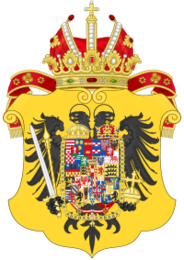CyrilVladisla
Imperial Majesty
- Joined
- Dec 2, 2013
- Messages
- 12,126
- City
- Conneaut
- Country
- United States
On December 25, 800 Pope Leo III crowned Charlemagne Holy Roman Emperor.
On December 25, 1046 Pope Clement VI crowned Henry III as Holy Roman Emperor.
On December 25, 1046 Pope Clement VI crowned Henry III as Holy Roman Emperor.



 It is interesting to note that Ferdinand IV had a coronation in Ratisbon in 1653 but did not live to succeed his father.
It is interesting to note that Ferdinand IV had a coronation in Ratisbon in 1653 but did not live to succeed his father.